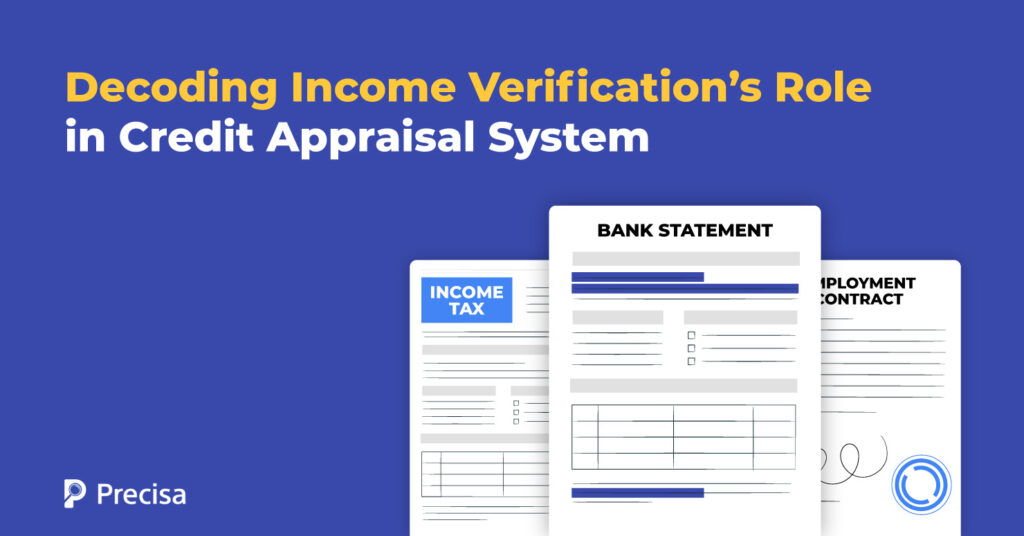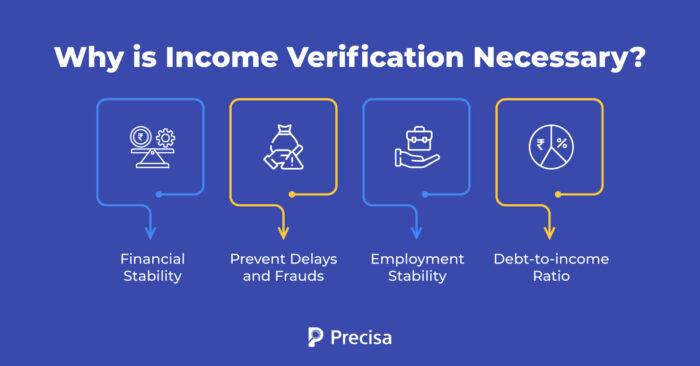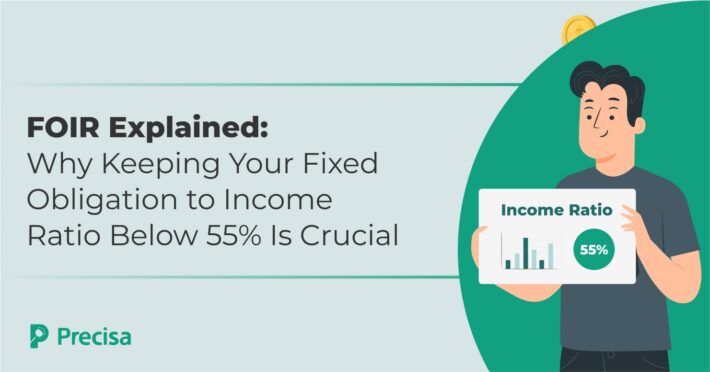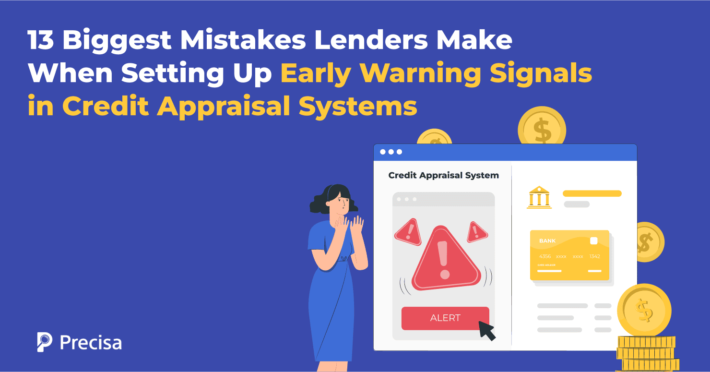Decoding Income Verification’s Role in Credit Appraisal System

Imagine applying for a loan to start your dream business. The lender is excited about your idea, but they need one crucial thing: proof that you can afford to repay the loan. That’s where income verification comes in – a crucial step in the credit appraisal system
which determines your ability to handle the financial responsibility.
Income sources, expenses, liabilities, and assets are some of the most common financial statements used by lenders to get a better idea of a borrower’s creditworthiness. This is why financial institutions, lending firms, and standalone lenders inspect borrowers’ different financial statements to determine their business or financial health.
Lenders generally favour borrowers with a steady income source and consistent employment history since they can handle or are equipped to handle debt-related obligations.
The higher a borrower’s income, the greater their borrowing capacity, which is also why credit cards come in different tiers.
This blog post examines the importance of income verification in a credit appraisal system and the key parameters evaluated during the process.
Let us begin by understanding what income verification is.
What is Income Verification?
Income verification, as the name suggests, is part of a lender’s due diligence process in the credit appraisal system to determine a borrower’s income, financial stability, reliability of income sources, and consistency.
Bank statements, employment contracts, and income tax returns are the most common documents accepted by lenders to verify a borrower’s income and their creditworthiness.
Why Income Verification is Necessary?
Trust, credibility, and reliablity are some of the top factors in the credit space. Lenders have their way of assessing a borrower’s borrowing capacity and probability of repaying the loan.
This section explores the need for income verification and why it is necessary to prevent fraud, and delays, and maintain financial stability.
1. Financial Stability
Income verification in the credit appraisal system is an important preventive measure for lenders and borrowers. While lenders gain clarity into a borrower’s income and capabilities of repaying the loan, borrowers understand their borrowing threshold.
Income verification ensures borrowers do not exceed their borrowing capacity and also allows lenders to evaluate a borrower’s debt-to-income ratio.
In short, it is a win-win situation for both parties, paving the way for short and long-term financial stability.
2. Prevent Delays and Frauds
According to data released by CIBIL, delayed payments on personal loans increased by 10% of the country’s financial system’s loan portfolio in 2023.
The Reserve Bank of India has also released alarming numbers stating that loan-related fraud accounted for the highest share of the total banking sector frauds in FY23 with the figure crossing the ₹18,746 crore mark.
Delayed payments and fraud are among the top concerns for lenders, increasing the need for microscopic due diligence during the credit appraisal system, including income verification, background checks, payment history, and more.
Income verification serves as a protective measure to ensure borrowers do not engage in fraudulent activities. Additionally, it simplifies credit origination, flagging discrepancies and alerting lenders if borrowers have misrepresented their financial situation. Therefore, lenders can bifurcate trustworthy applicants from ones who comply with the defined requirements.
3. Employment Stability
As mentioned earlier, while a borrower’s employment stability is not the only factor lenders consider while evaluating their creditworthiness, it is an important metric.
Lenders are likely to sanction loans for applicants who have a stable employment history compared to those who have inconsistent and unconvincing sources of income and employment patterns.
Income verification in the credit appraisal system offers a comprehensive view of an applicant’s employment history, empowering lenders to make informed decisions.
4. Debt-to-income Ratio
Lending institutions and independent lenders also look at an applicant’s debt-to-income ratio to determine whether a borrower is financially capable to handle additional debt. The debt-to-income ratio calculates the percentage of a borrower’s income that is directed toward repaying debt.
For instance, if a person’s monthly income is 40,000 INR and they pay 20,000 INR to clear debt, their debt-to-income ratio is 50%.
Income verification allows lenders to calculate the borrower’s debt-to-income ratio and also understand their debt obligations. Lenders typically favour borrowers with low debt-to-income ratios as it gives them confidence since they aren’t tied to prior debt commitments or obligations.
Automation in Income Verification
The Indian financial ecosystem is becoming increasingly crowded and competitive due to different factors including government initiatives supporting the development and growth of financial technology (fintech) startups and businesses, advancements in tech, and evolving consumer demographics.
As the competition becomes fierce, lenders need to go above and beyond to provide tech-enabled financial services and products and seamless customer experiences.
The advent of automation and tech-driven solutions is gradually replacing tedious and mundane tasks and the need for manual paperwork across the financial ecosystem.
Many lending institutions, especially banks in the private sector, are automating their processes to stand out and compete with sophisticated fintech businesses, micro-lenders, and other players in the market.
Automated income verification shortens lengthy background verifications, data collection, and other income-related processes, allowing them to complete the entire cycle within seconds.
Parting Notes
Income verification in the credit appraisal system is an important parameter that empowers lenders to determine a borrower’s creditworthiness. Additionally, it also allows them to detect anomalies and other discrepancies which could result in delayed payments and loan-related frauds.
As the lending sector is undergoing a significant overhaul due to a blend of government initiatives and technological advancements, lenders must focus on automating income verification and other financial processes to strengthen their foothold in the highly competitive market.
Precisa’s cutting-edge financial data analytical solutions empower players in the financial ecosystem to serve their clients to the best of their abilities.
From accurate and quick bank statement analysis to credit report analysis, our solutions are extensively used by banks, fintech businesses, chartered accountants, and other participants in the financial sector.
Contact us today to learn more.




